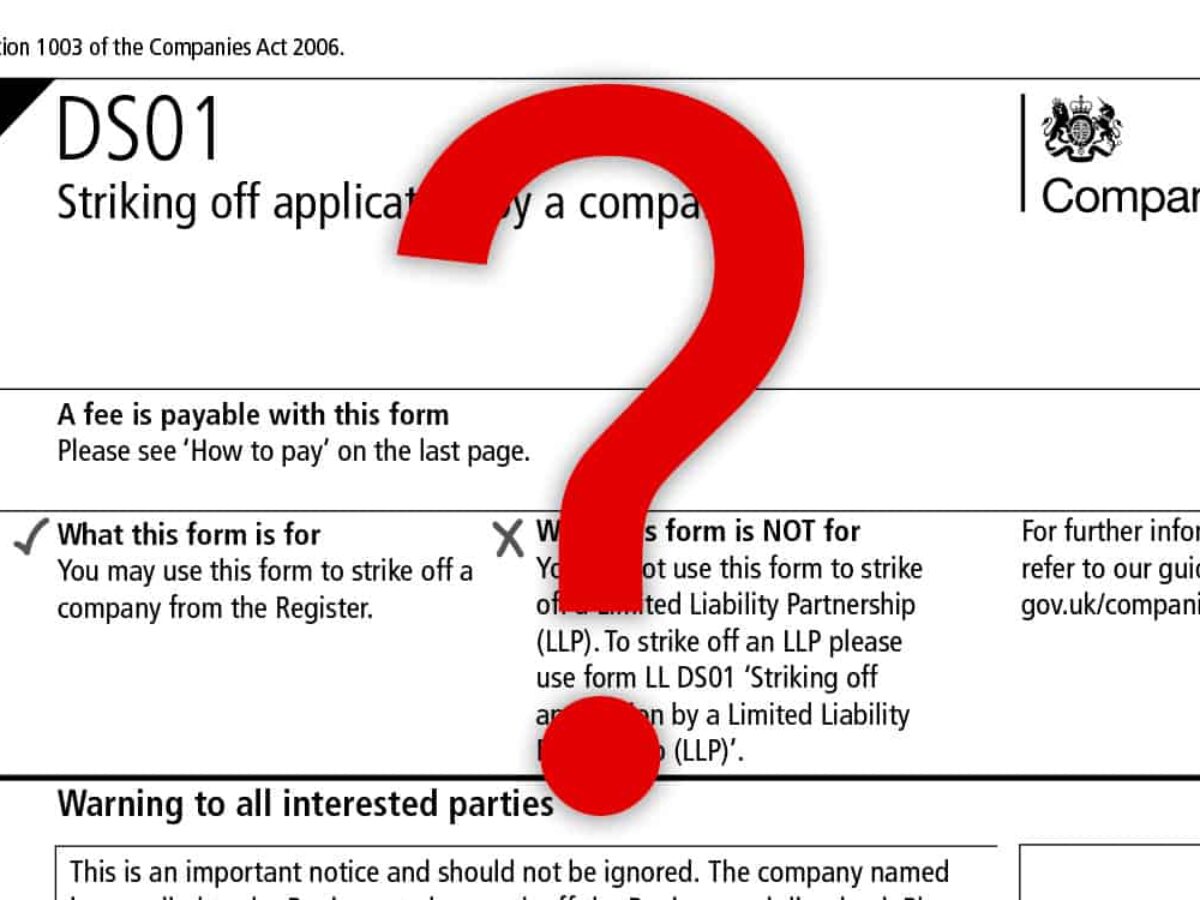Importance of the First Gazette Notice in Compulsory Strike Off
Importance of the First Gazette Notice in Compulsory Strike Off
Blog Article
Abiding By Regulatory Commitments: Trick Factors for Compulsory Strike off Application
Navigating the landscape of regulatory responsibilities can be a complicated undertaking for businesses. Making sure conformity with the needed needs is critical when it comes to the application of mandatory strike off procedures - first gazette notice for compulsory strike off. From meticulous paperwork practices to proactive interaction with governing authorities, there are vital factors that companies have to take into consideration to navigate this procedure effectively. By comprehending the nuances of regulatory compliance and the ramifications of non-compliance, services can protect their operations and credibility.

Regulatory Compliance Analysis
When performing a regulatory conformity analysis, it is important to carefully assess and analyze all pertinent regulations, regulations, and guidelines that refer to the certain industry or operation concerned. By completely checking out the legal framework, companies can make sure that they recognize their commitments and are geared up to promote the necessary standards stated by regulatory bodies.
Throughout the analysis procedure, it is essential to determine any type of spaces in between regulatory demands and present methods. This space analysis enables companies to identify locations of non-compliance and take restorative actions to alleviate threats. compulsory strike off. Conducting a comprehensive review enables companies to establish internal controls and methods that straighten with governing assumptions.
Furthermore, a regulatory compliance analysis serves as a proactive procedure to stop possible offenses that might result in expensive fines or reputational damages. By remaining abreast of regulatory adjustments and continuously evaluating their conformity standing, businesses can cultivate a society of adherence to moral requirements and legal needs. Inevitably, a complete regulatory compliance assessment is fundamental in promoting functional integrity and sustainability.
Documentation and Record-Keeping
Ensuring thorough paperwork and precise record-keeping methods is a cornerstone of governing conformity in any industry. Appropriate documents not just help in meeting legal requirements but additionally works as an important device for inner monitoring and decision-making procedures. Organizations should establish robust systems for recording key tasks, transactions, and decisions to make certain transparency and responsibility.
Preserving precise records is important for demonstrating compliance during governing audits or investigations. Records must be organized, easily available, and retained for the needed duration as per regulatory guidelines. Executing a central digital document monitoring system can streamline record-keeping processes, improve information safety, and alleviate the risk of info loss or tampering.
Routine audits of paperwork methods are critical to identify gaps or inconsistencies that could lead to conformity concerns. Educating workers on appropriate record-keeping procedures and information security steps is also imperative to maintain regulatory criteria. By focusing on careful paperwork and record-keeping, organizations can proactively mitigate compliance threats and promote a culture of accountability and honesty within the firm.
Timely Entry of Information
Proper documents and record-keeping practices lay the foundation for regulatory conformity; likewise, timely submission of reports is paramount in showing adherence to established protocols and meeting reporting obligations. Timely entry of records guarantees that governing bodies get precise and up-to-date information concerning the entity's operations, financial standing, and compliance with relevant legislations and laws.
Failing to submit records in a timely manner can result in fines, penalties, or other enforcement activities. It can likewise elevate suspicions about the entity's total compliance society and governance techniques. To help with timely entries, organizations must develop clear reporting timelines, assign sufficient resources for report prep work, and carry out durable internal controls to check deadlines and make sure precision.
Furthermore, timely submission of records improves openness and accountability, promoting trust fund with stakeholders, consisting of capitalists, regulators, and the general public. It signifies a dedication to excellent governance practices and regulative conformity, which can favorably influence the entity's track record and trustworthiness in the industry. By focusing on the prompt entry of reports, companies show their devotion to running with integrity and according to relevant regulations and laws.
Financial Openness and Liability
Showing monetary openness and responsibility is essential for promoting depend on and credibility within a company's stakeholder area. first gazette notice for compulsory strike off. By giving accurate and clear monetary information, firms can display their dedication to moral practices and appear administration. Openness in economic reporting permits stakeholders to analyze the company's efficiency, make notified decisions, and hold management answerable for their activities
To ensure economic openness, firms must follow bookkeeping criteria and policies, accurately record economic purchases, and divulge info in a timely fashion. Normal audits by independent 3rd celebrations can further validate the precision and integrity of economic statements. Additionally, applying internal controls and segregation of duties can help avoid scams and errors, boosting general liability.
Reliable interaction of monetary information via yearly records, financier discussions, and stakeholder conferences is critical for maintaining transparency. Companies must engage with stakeholders, address problems, and reply to inquiries immediately to build count on and enhance relationships. Inevitably, a dedication to economic transparency and liability find this not only fulfills regulatory demands yet also boosts the company's track record and sustainability.
Interaction With Regulatory Authorities

In addition, aggressive interaction can help attend to potential conformity problems before they rise, thereby avoiding more considerable regulatory concerns in the future. Routine discussion with regulatory authorities likewise enables organizations to stay educated concerning any type of adjustments in guidelines or reporting requirements, enabling them to adapt their practices as necessary. By maintaining open lines of interaction and promptly addressing any kind of inquiries or demands from regulative authorities, companies can browse the regulatory landscape much more successfully and promote their commitment to compliance and liability.

Conclusion
To conclude, making certain conformity with regulatory responsibilities is crucial for try this web-site the successful application of compulsory strike off actions. By carrying out regular evaluations, preserving thorough paperwork, submitting records immediately, exercising financial transparency, and communicating efficiently with governing authorities, companies can alleviate the risk of being or facing charges struck off. It is essential for entities to maintain their responsibilities and abide by regulatory needs to prevent any type of damaging repercussions.
Making sure thorough paperwork and precise record-keeping methods is a cornerstone of regulatory compliance in any type of market.Amidst the imperative of maintaining monetary openness and accountability, efficient communication with regulatory authorities stands as a critical component in supporting organizational conformity and stability. Timely and transparent communication with governing bodies fosters count on and demonstrates a commitment to regulatory conformity, which is essential for the smooth procedure of any type of organization. Giving accurate and total info ensures that regulatory bodies have an extensive understanding of the company's activities and can make find more info enlightened decisions pertaining to conformity problems.
By maintaining open lines of interaction and without delay addressing any queries or demands from regulatory authorities, organizations can navigate the regulatory landscape much more efficiently and promote their dedication to compliance and liability.
Report this page